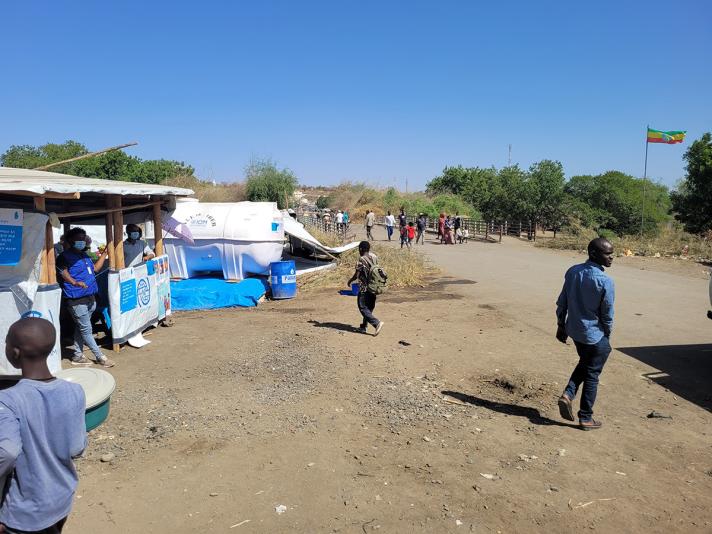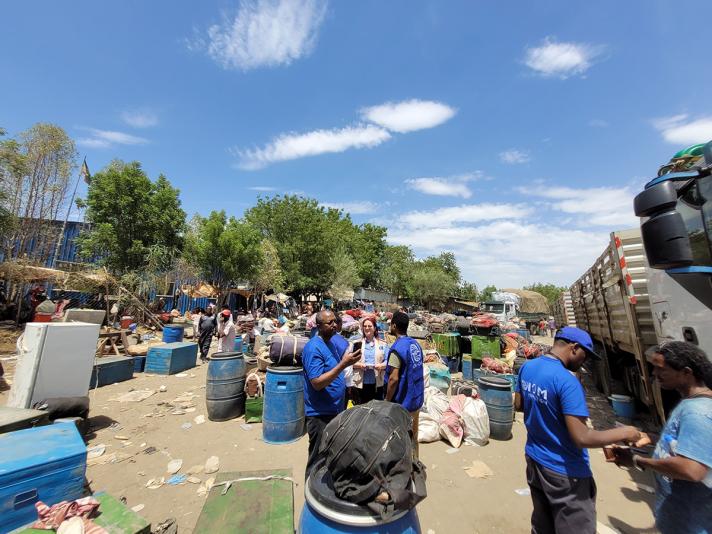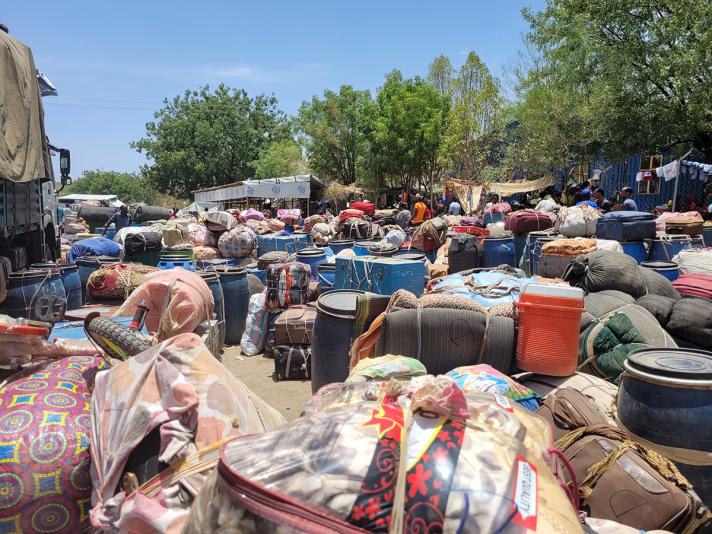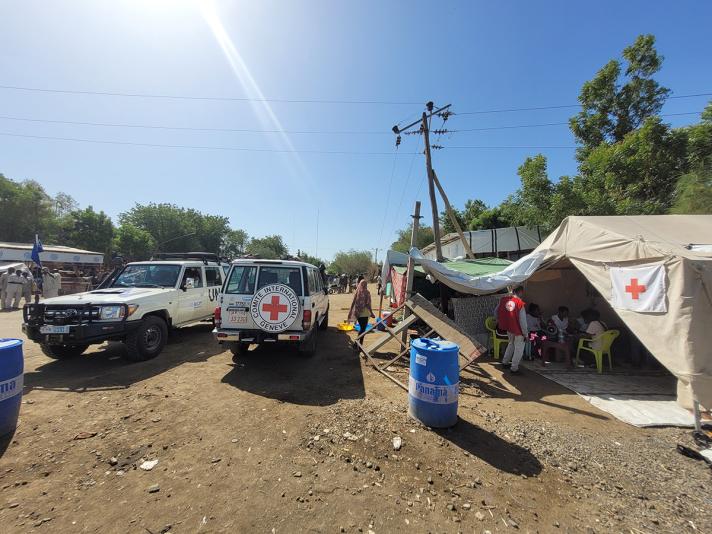The conflict that broke out in Sudan in April 2023 has resulted in loss of life and pushed over 1 million people to seek for safety. It is estimated that over 250,000 people have fled to neighbouring countries, including Ethiopia.
Responding to the crisis, the EU has mobilised funding and resources to address the immediate needs of refugees from Sudan and returnees.
In addition, our experts are assessing first-hand the humanitarian needs on the ground. Silvya, who works in the EU’s humanitarian office in Addis Ababa, Ethiopia, told us about the situation she witnessed at the border with Sudan.
Between 21 April and 22 May 2023, over 27,000 people, from 65 different nationalities, had arrived at the Metema crossing point, in Ethiopia’s Amhara region.
Most of them are Ethiopian nationals returning to Ethiopia from Sudan. We also met with Sudanese, Eritreans, Turks who fled the fighting, some of them for the second time of their lives, such as Eritreans who were living in Sudan as refugees.
At the Metema crossing point, the needs are overwhelming: water, hygiene kits, food, clothes, shoes, mats, dignity kits, all essentials are needed.
Refugees, returnees and third-country nationals crossing into Ethiopia also require shelter and transportation to further locations. Our humanitarian partners on the ground are working round-the-clock to meet these needs.
Responding to the immediate needs
The International Organization for Migration (IOM) has staff established at the end of the bridge connecting Ethiopia with Sudan. They conduct an initial screening of the incoming refugees and returnees, including a medical screening.
A temporary migration centre was recently refurbished in the area, with new latrines, showers and resting places.
Hundreds of those fleeing Sudan pass through the centre daily. A new shelter, with the capacity to accommodate up to 240 people, is expected to be ready in 2 months.


On the border - Sudan conflict Gallery 01The IOM registers those fleeing across the border and provides, among others, water and hygiene kits. 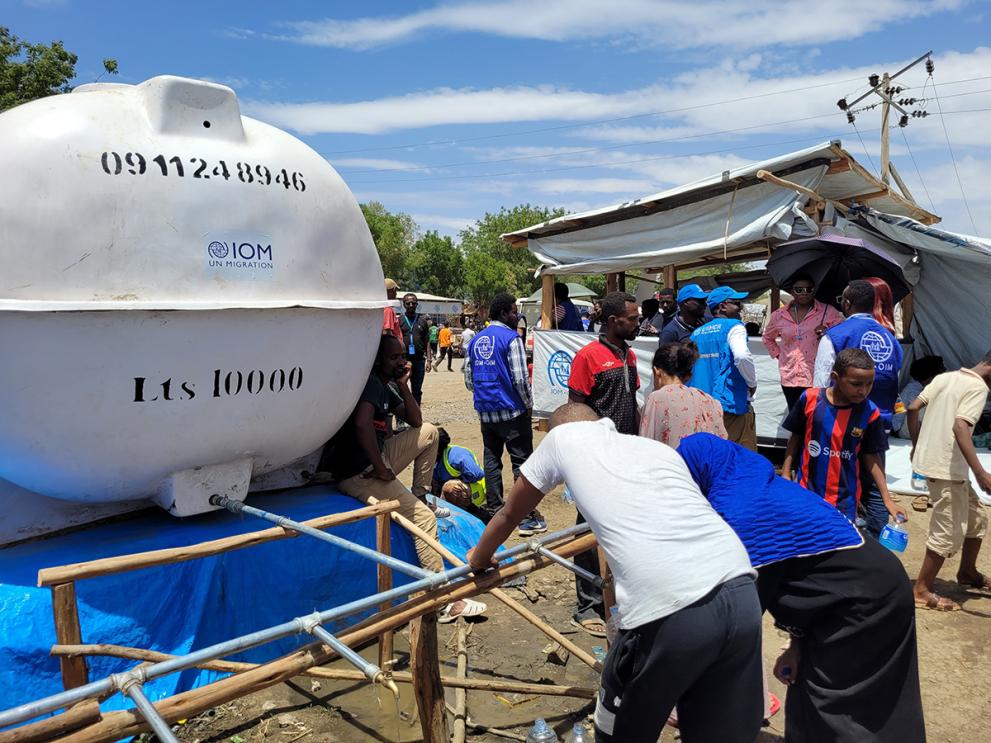
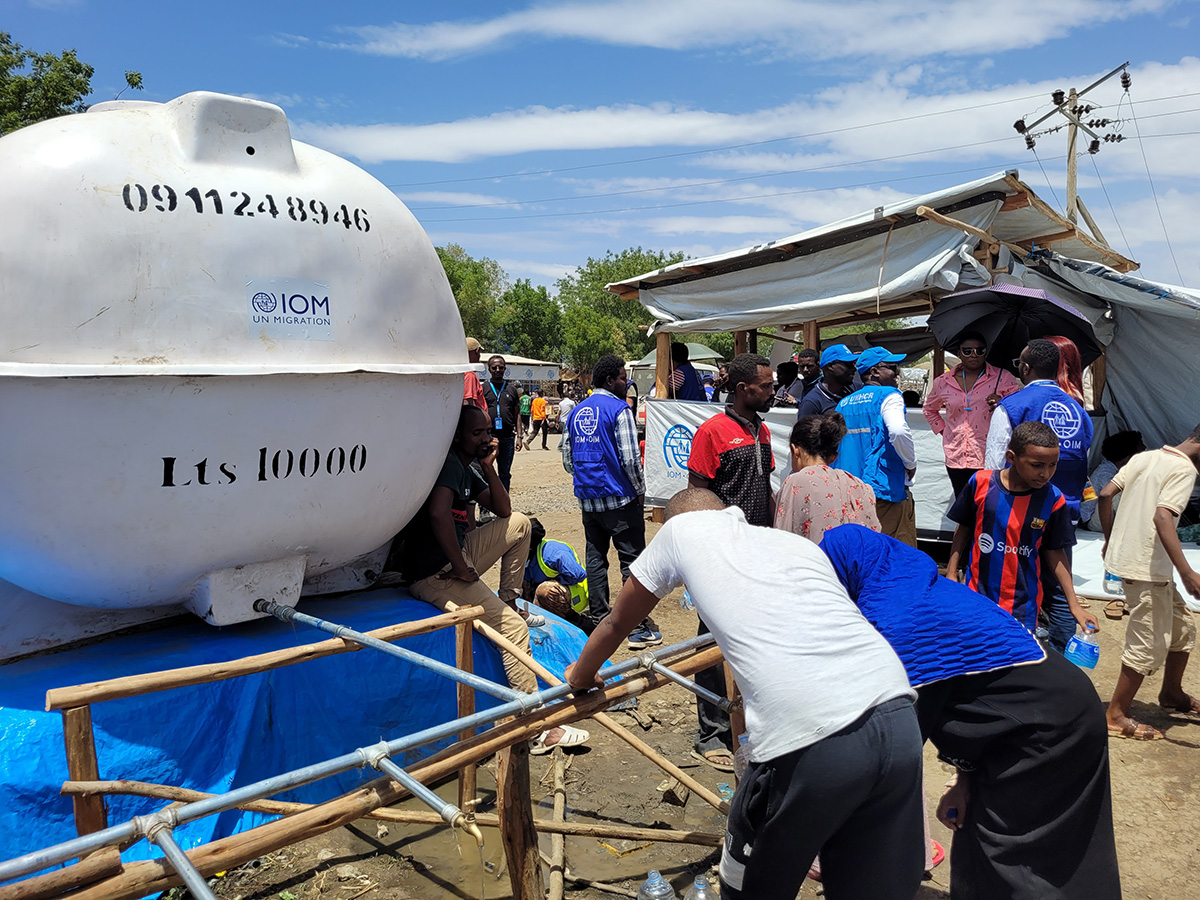
On the border - Sudan conflict Gallery 02The IOM registers those fleeing across the border and provides, among others, water and hygiene kits 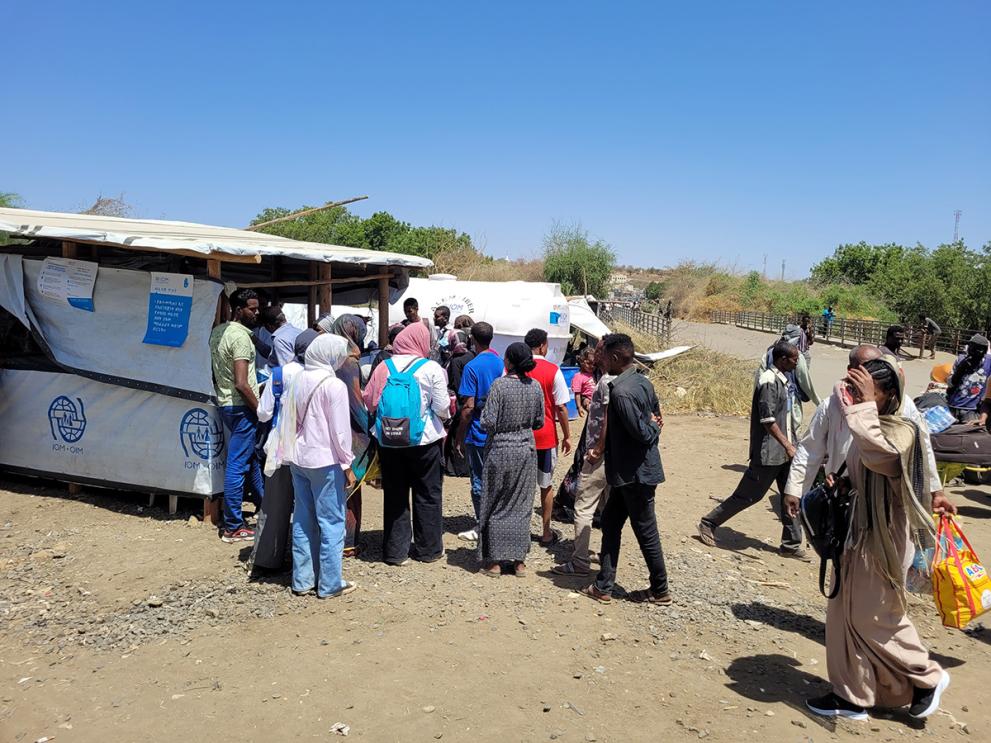
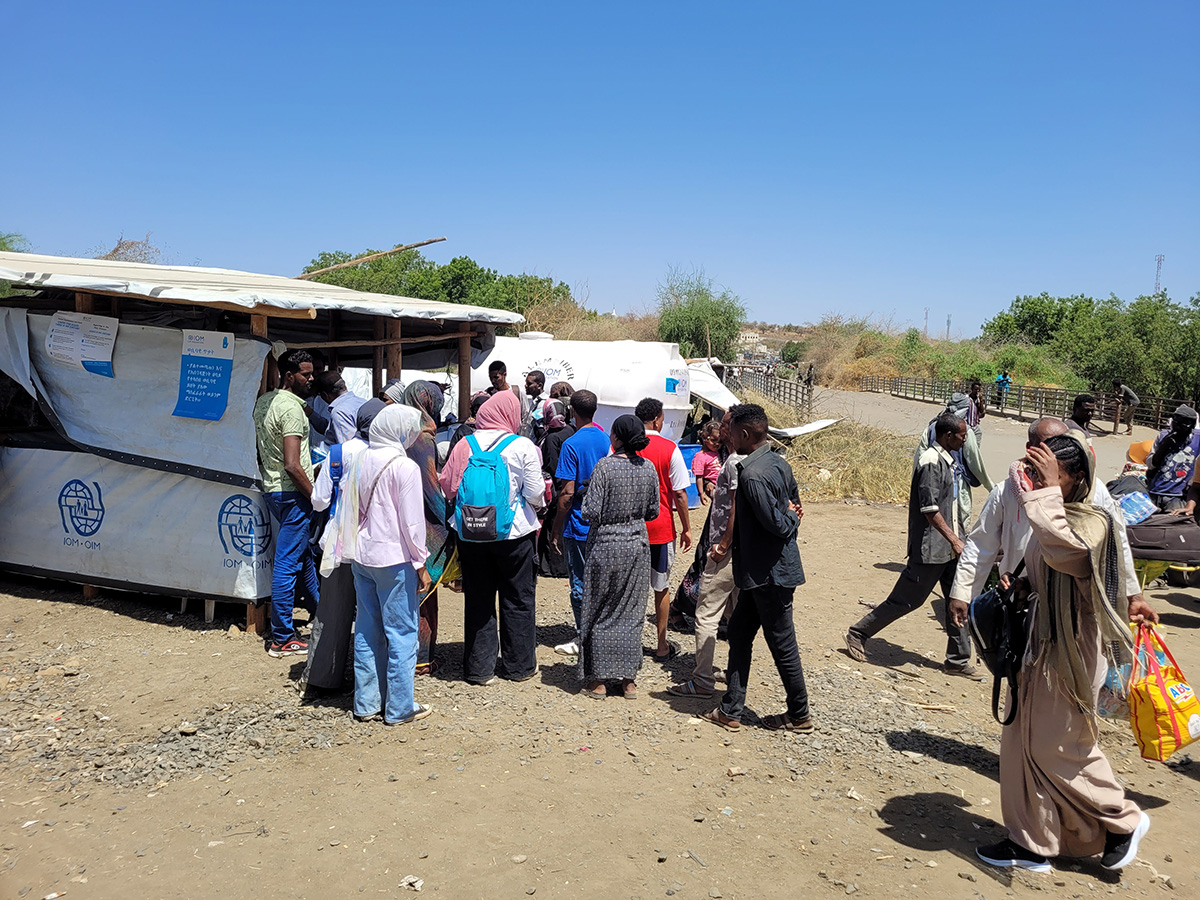
On the border - Sudan conflict Gallery 03The IOM registers those fleeing across the border and provides, among others, water and hygiene kits.
After their arrival, people can use buses rented by the IOM to travel to Addis Ababa or other destinations within Ethiopia. This helps decongest the crowded border area.
However, obstacles remain. Customs checks every piece of luggage going through. Crates, luggage and other belongings are strewn around the area, waiting for inspection.
Only then can their owners move on to another village or town. Still, around 700-800 people leave Metema each day on the IOM-rented buses.
The UN’s Refugee Agency (UNHCR) registers refugees and asylum seekers and provides them with essential non-food items, as well as food. Up to 1,500 people receive this assistance daily.
UNHCR also manages an information and protection desk, staffed by volunteers. It is building a temporary emergency site to host hundreds of refugees/asylum seekers now stranded on the border.
The Ethiopian Red Cross Society – which also receives EU humanitarian funding – and the ICRC have also been on the front line of helping civilians since the first day of the conflict.
They provide non-food items and basic health care. In addition, they help restore family links, which is of crucial in situations where people have suddenly been forced to flee their homes.
Ethiopia’s local and federal authorities are also assisting in receiving refugees and returnees. They are providing land for new sites, deploying medical professionals and participating in coordinating the response.
However, with needs growing with each passing day, a strong international response remains necessary.
Story by Silvya Bolliger and Yolanda Valassopoulou, EU Civil Protection and Humanitarian Aid Operations
Photos: © European Union, 2023 (photographer: Silvya Bolliger)
Publication date: 01/06/2023

